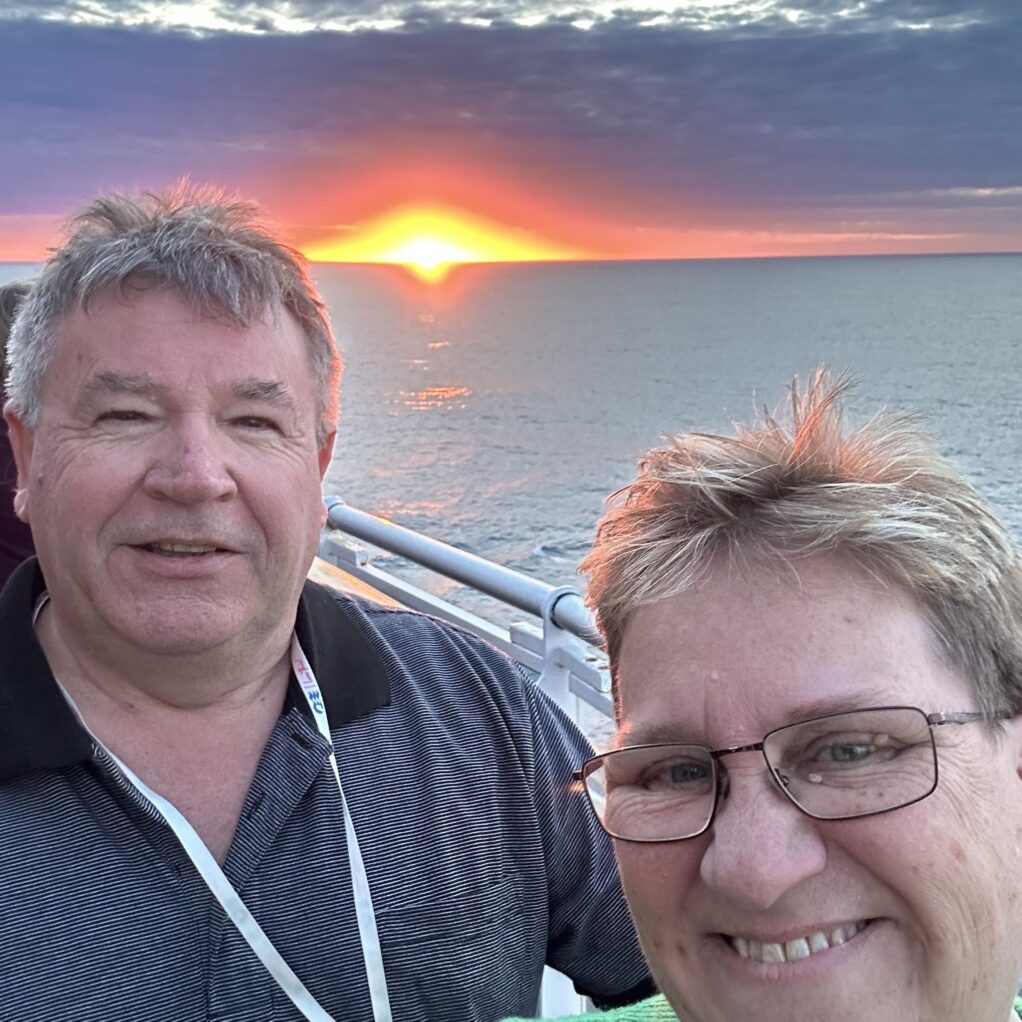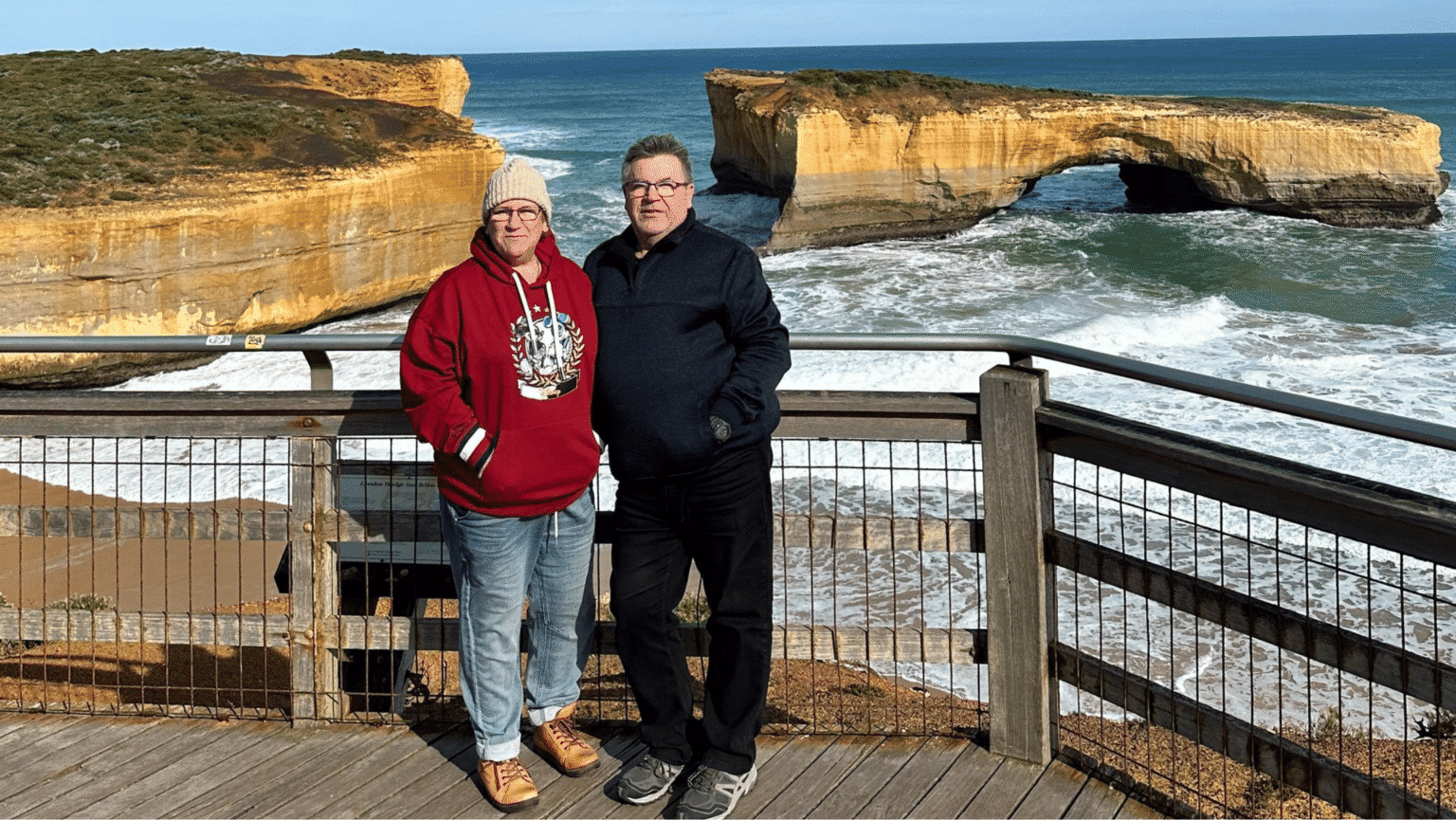Melanie Hutcho and her husband’s retirement celebration holiday was cut short when her husband Kevin’s dad died in a nursing home.
But then, another tragedy – they were hit by an insurance clause that dashed their hopes of compensation.
The couple had saved up to celebrate Hutcho’s retirement – it was a four-week Princess cruise from Sydney to Seattle, and then a back-to-back cruise from Seattle to Alaska.
Hutcho and her husband took off on the cruise to celebrate her retirement after years of hard work. The trip cost $29,000 for the pair.
Hutcho felt reassured in the fact that she was prepared for all circumstances, having taken out a $2600 travel insurance policy with CoverMore, selecting the most comprehensive options she could find.
But 20 days into the cruise, Hutcho’s father tragically passed away, aged 89.
The couple had to leave the cruise early, completing 20 days of their 32-day trip, which meant the couple were not able to sail on the second portion of their holiday – a Seattle roundtrip to Alaska on Discovery Princess. After making the long journey back to Australia, and attending her father’s funeral, Hutcho looked to her insurance to recoup the costs of travelling back to Australia and missing her cruise.
However, she didn’t realise there was a crucial clause she had missed. A clause that you’ll find in one form or another in all major travel insurance policies.
“After completing my father’s funeral and morning period we contacted our travelling insurance. We have been supporters and loyal customers for 15 years with at least three trips a year.
“We received a payout of only $1000 each, as they have a clause for if a parent has been in a nursing home in the 12 months prior, they will not cover any claim to do with the death of a family member whether travelling or not.”
The insurance clause you should know about
Cover-More official product disclosure statement says: “We will pay for claims arising from the sudden disabling injury, sickness or disease or death of a Relative or Your
business partner who is not travelling if, at the Relevant Time, that person was not residing in a facility such as a nursing home, an aged care facility, a residential aged care home, a high and/or low care facility, a privately owned accommodation facility such as Supported ResidentialServices or Facilities (SRS/SRF) or, a residential care facility.”
Hutcho was unhappy with not being able to recoup any of the costs from her ruined holiday due to this clause she hadn’t noticed.
“Needless to say this was a retirement trip and we could afford not twice. We are absolutely horrified by the $20,000 loss. You think you’re doing the right thing and then you get a great big ‘denied’.”
Hutcho and her husband are platinum members with Princess and have been sailing with them for years. They have also tried to speak with Princess Cruise Line but haven’t had any luck.
Hutcho has taken to Facebook groups to spread awareness of the clause and help others from landing in a similar situation.

Many other commenters had unfortunately been in similar predicaments.
Kathryn Van Der Merwe, an ex-travel agent specified that this is a very common insurance clause that all should be aware of.
“We lost my mother-in-law unexpectedly on the third day into a 35-night transpacific cruise.
“Unfortunately this a standard clause in all travel insurances. For example, CoverMore policies in general cover significantly more than most, if not all, other companies. Your travel agent should have made this specific clause very clear to you upon taking out your policy.”
Michelle Williams wrote: “We had a similar experience a couple of years ago. I got ill and had to fly home and my Dad was dying in hospital. The insurance company only covered $1000 plus medical costs.
“Exclusions far outweigh the inclusions, a lesson learned for us.”
What to learn from Melanie’s story
- As cliche as the advice is, read the fine print of your insurance. Understandably, it is arduous to read a complete document as Cover-More’s 56-page product disclosure statement. One way to cut down time is to think of exclusions or inclusions that may influence you, such as conditions that you or a family member have, then rather than read the whole document you can download the document digitally and search specifically for those conditions.
- When you are reading, make sure you focus just as much on the exclusions as the inclusions to get an accurate picture of what you will be covered for.
- Another method is if you are booking your cruise with a travel agent, they will likely already be aware of the majority of clauses in your insurance. You can discuss your circumstances with your agent such as your health and the health of family members, and they can alert you to any relevant clauses.
- Make a plan. As morbid as it may sound, cruisers such as Beverley Wilkins had a plan in place when she wanted to travel while her 94-year-old mother was in a nursing home. They had agreed beforehand with a Funeral Home to delay the funeral and burial until they returned. This is not done with the purpose of maximising holiday time during tragedy, but rather minimising the costs of last-minute flights or leaving a cruise, in what is already a difficult time, emotionally and financially for a family.
- If you are in Melanie’s exact situation, unfortunately it will be extremely difficult to find an insurer that will cover it. You could attempt to minimise risk with flexible flights or other refundable bookings, but essentially you will have to make a decision on whether the risk is worth it to you.








Mike . I worked for 7 years with a travel insurance company and 10 years in general insurance. If travel insurance were scammers they wouldn’t be here. All insurance companies have a team of statisticians working out the sums to get the insurance premium. The PDS are written by lawyers or looked over by lawyers before being released.
The bottom line with insurance is you take the cover yourself. As in pay for what bad things that might happen to you. Like I don’t pay for content insurance as I know my poorly contents I can cover myself. But I buy car insurance as I know i couldn’t afford that Tesla that I might crash into. If you don’t have Travel insurance and you have an accident in America, then God help you.
Saying that the Travel Agent should have pointed this out is a bit rough, that is why everyone is told to ensure that the policy is suitable to their particular needs. A travel agent cannot know everyone’s needs, it’s impossible. Still, a shocking outcome for a journey of a lifetime cut short and a good reason as to why we all should read fine print. It certainly does not mean that the insurance companies and bosses are “scammers” as one person stated. It’s not a scam if it actually states this in the policy, annoying, but no scam.
Mike – if you read this article you would see that all insurance companies have this clause, not just Covermore .
Happy I saw this story…NO MORE COVERMORE FOR OUR NEXT TRIPS NOW AND INTO THE FUTURE. Was buying this week for our next cruise.
INSURANCE BOSSES ARE JUST SCAMMERS. WHERE IS THE CLEAR AND READABLE FINE PRINT IN BOLD WRITING THE GOVERNMENT INSISTS COMPANIES GIVE NOT BURIED 100 PAGES DEEP IN 20 SUB-CLAUSES WRITTEN IN LAWYER TALK????????????????
SO HARD TO FIND HONESTY THESE DAYS. DO NOT KNOW HOW THESE PEOPLE SLEEP AT NIGHT? MUST HAVE SPECIAL BEDS MADE THAT TWIST AND TURN !!